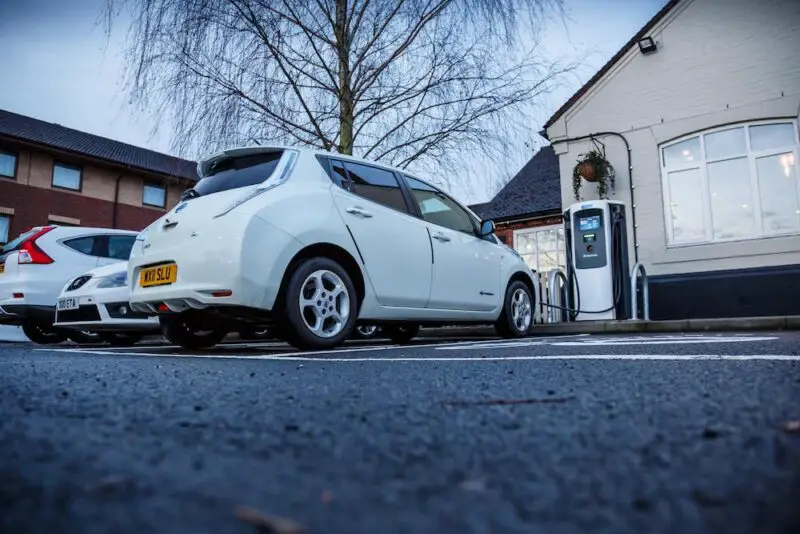As electric vehicles (EVs) continue to gain popularity, many owners are discovering the benefits of owning these innovative and eco-friendly cars. However, along with the excitement of driving an EV comes the responsibility of maintaining and repairing it.
Understanding how to maintain and repair your EV is crucial for several reasons:
- It empowers you as an EV owner to take control of your vehicle’s upkeep, ensuring it remains in optimal condition for years to come.
- It can help you save time and money by performing basic maintenance tasks yourself, rather than relying solely on professional mechanics.
- Having knowledge of EV maintenance and repair options allows you to make informed decisions about your vehicle’s care, ensuring its longevity and performance.
What Maintenance Does An EV Need?
Knowing how EVs work, you’ll appreciate their low maintenance requirements compared to traditional internal combustion engine vehicles. However, like any vehicle, EVs still require regular upkeep to ensure optimal performance and longevity.
Battery Health Checks: The battery pack is the heart of an EV, providing the power needed to drive. Regularly monitoring the health of the battery is crucial for maintaining range and performance. Many EVs come equipped with built-in diagnostics that allow you to check the state of charge and overall health of the battery.
Tire Maintenance: Proper tire maintenance is essential for safety and efficiency. EVs, like all vehicles, benefit from regular tire inspections, including checking tire pressure, tread depth, and overall condition.
Brake System Inspections: EVs use regenerative braking to slow down and recapture energy, which can reduce wear on the traditional braking system. However, it’s still important to inspect the brake pads and rotors periodically for signs of wear and tear.
Coolant System Checks: EVs rely on cooling systems to maintain optimal operating temperatures for the battery, motor, and electronics. Regularly checking coolant levels and inspecting for leaks is crucial for preventing overheating and ensuring the longevity of critical components.
HVAC System Maintenance: The heating, ventilation, and air conditioning (HVAC) system in an EV plays a vital role in passenger comfort and battery temperature regulation. Regularly inspecting and servicing the HVAC system can help prevent issues and ensure efficient operation.
Basic DIY EV Maintenance Tasks
While electric vehicles (EVs) are known for their simplicity and reliability, there are several basic maintenance tasks that EV owners can perform themselves to keep their vehicles running smoothly.
- Checking Tire Pressure: Use a tire pressure gauge to regularly check the pressure of each tire, including the spare. Refer to the manufacturer’s recommendations for the optimal tire pressure, which can usually be found on a sticker inside the driver’s door or in the owner’s manual. Adjust the pressure as needed and don’t forget to check it when the tires are cold for accurate readings.
- Topping Up Windshield Washer Fluid: Use a suitable windshield washer fluid that won’t damage the vehicle’s paint or wiper blades. If the fluid level is low, simply add more fluid until it reaches the appropriate level indicated on the reservoir.
- Inspecting Brake Lights and Turn Signals: Regularly inspect these lights to ensure they are working correctly. If any bulbs are burnt out or not functioning properly, replace them as soon as possible to maintain safety on the road.
- Checking and Replacing Cabin Air Filter: Refer to your vehicle’s owner’s manual to locate the cabin air filter and inspect it regularly. If the filter appears dirty or clogged, replace it according to the manufacturer’s recommendations.
- Inspecting Wiper Blades: Inspect the condition of your wiper blades regularly and replace them if they show signs of wear or deterioration. It’s also a good idea to clean the wiper blades periodically to remove any debris or buildup that could affect their performance.

Safety Considerations For DIY EV Repairs
When it comes to working on your electric vehicle (EV), safety should be your top priority. Here are some essential safety tips to keep in mind as you tackle DIY repairs:
- EVs use high-voltage systems to power their motors. Be aware of where these components are located and always assume that exposed wires could be carrying electricity.
- Before diving into any repairs, make sure you’re wearing the right gear. Insulated gloves, safety goggles, and non-conductive footwear are must-haves to protect yourself from electrical shocks.
- EV batteries can burn so take precautions to prevent overheating or short circuits. Keep a fire extinguisher rated for electrical fires nearby just in case.
- Ensure your vehicle is properly supported and stabilized before getting underneath it. Jack stands or ramps can help prevent accidents by keeping the vehicle from rolling or shifting.
By keeping these safety tips in mind, you can confidently tackle DIY repairs on your electric vehicle while staying safe and avoiding accidents.
When To Seek Professional Help
While many EV maintenance tasks can be safely performed at home, there are certain situations where it’s best to seek assistance from a professional.
Complex Repairs: If you encounter a repair that involves intricate electrical systems or components beyond your expertise, it’s wise to consult with a professional who has experience working on electric vehicles. They have the knowledge and skills to safely diagnose and repair complex issues.
Safety Concerns: If you’re unsure about how to safely handle a repair or if you encounter any safety concerns during the DIY process, it’s essential to seek assistance from a qualified professional. Your safety and the integrity of your vehicle are paramount, so don’t hesitate to reach out for help.
Specialized Equipment: Certain repairs may require specialized tools or equipment that you may not have access to at home. Professional technicians have access to specialized diagnostic tools and equipment designed specifically for EVs, allowing them to accurately diagnose and repair issues more efficiently.
Conclusion
Maintaining and repairing your electric vehicle (EV) can be a rewarding and empowering experience, but it’s essential to approach DIY tasks with caution and prioritize safety at all times. By familiarizing yourself with basic maintenance tasks and safety protocols, you can confidently tackle minor repairs and upkeep to keep your EV running smoothly.

